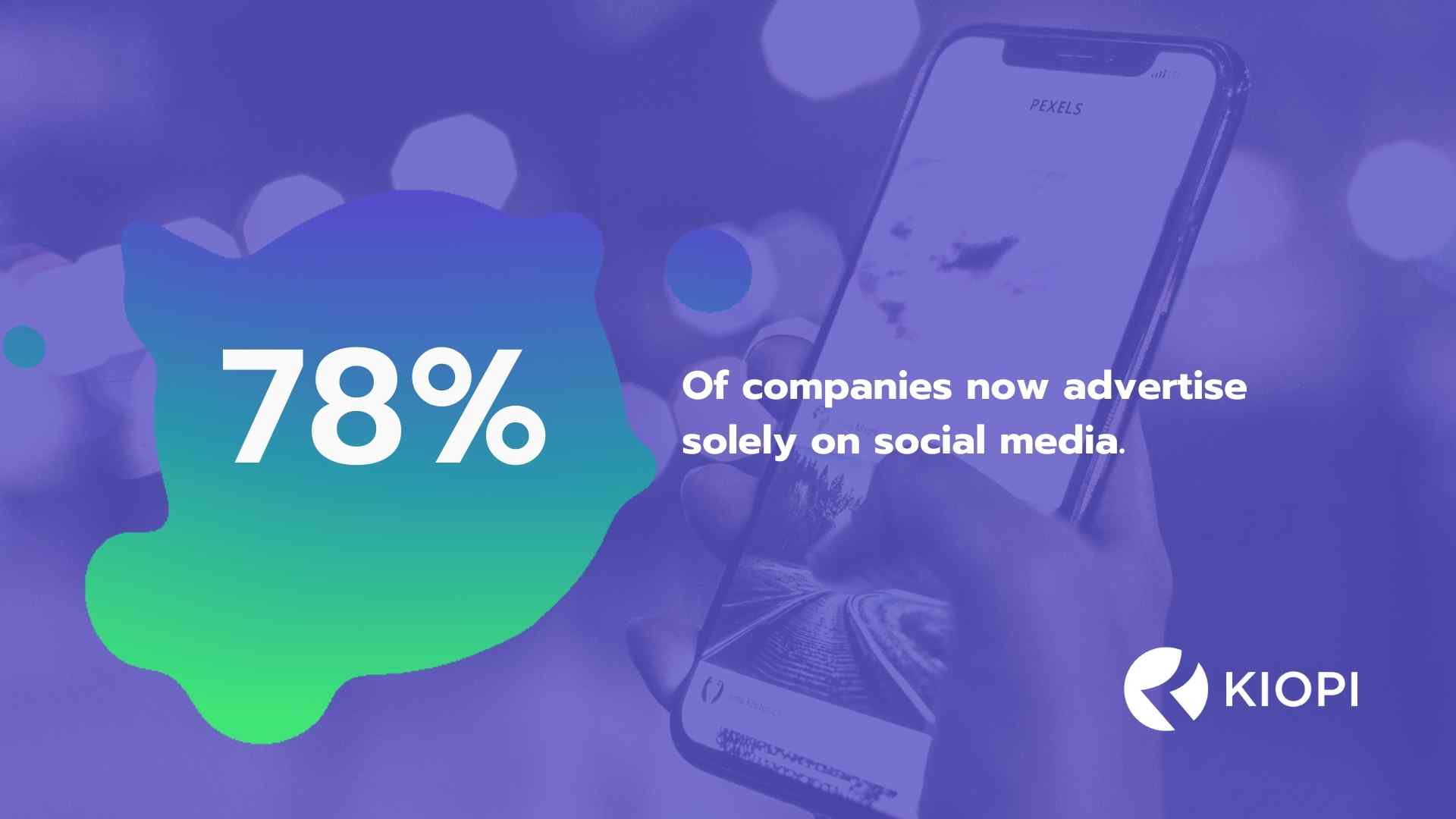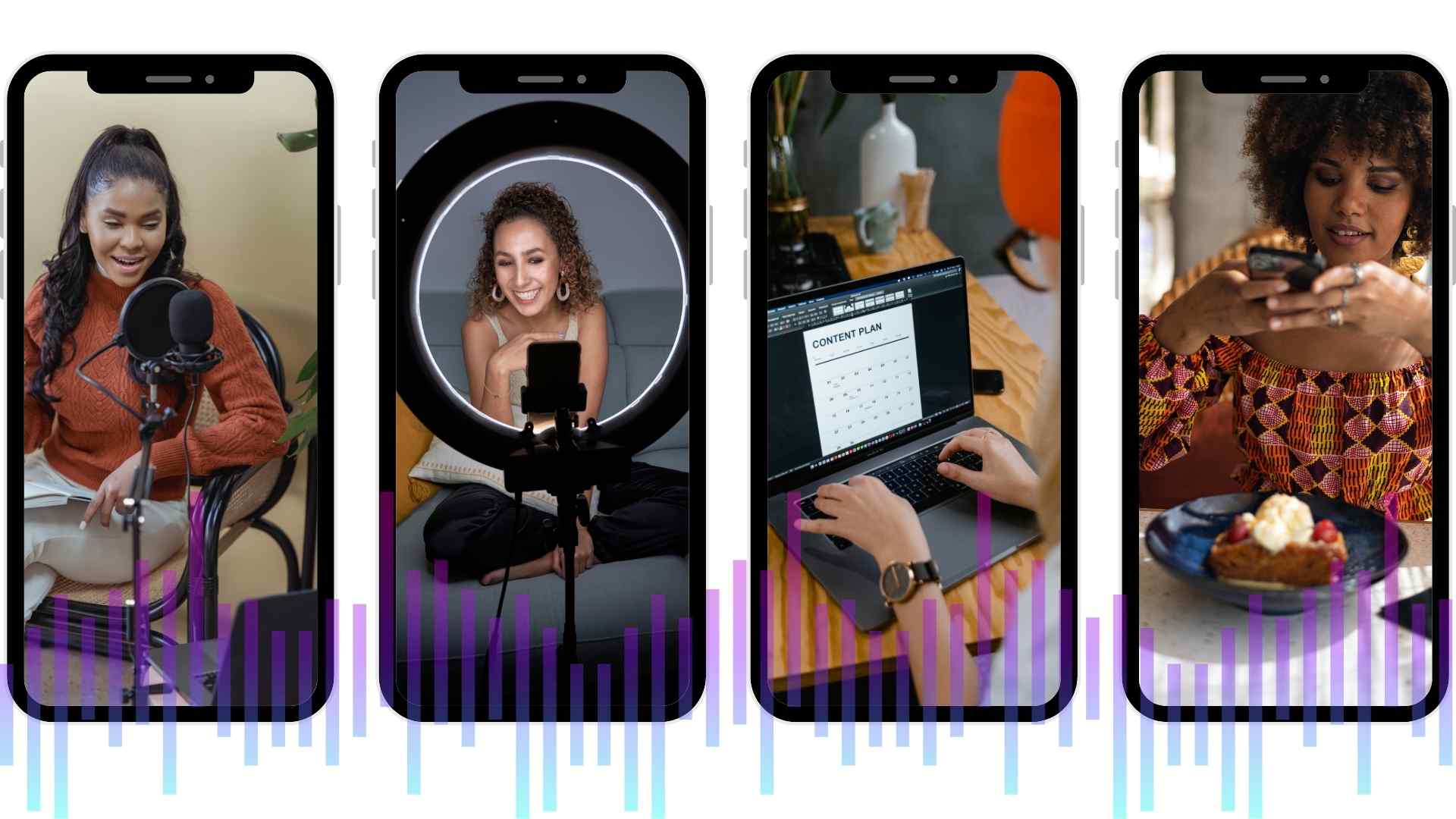Social Media Advertising vs. Marketing
lauryn preston
Table of Contents
In today’s digital landscape, social media advertising and marketing have become increasingly integral to a business or content creator’s overall success. In this blog, we discuss social media advertising vs. marketing: the similarities, differences, and how organic digital marketing and paid social campaigns can help you reach your business goals.
If you’re a business owner, content creator, or even a tech PR executive, and you’re ready to switch from traditional marketing methods to digital marketing through various social media channels, you have come to the right place.
Kiopi is a top-notch and cost-effective social media management service that can help you achieve success in your social media marketing and advertising campaigns. Start your 14-day free trial with Kiopi today.
Differentiating Between Social Media Advertising and Marketing
Sharing snippets of your life on a social media platform, like Facebook, began as a means for connection with loved ones. Now, Facebook and other social platforms mostly exist to sell you something: a product, a service, an idea, or a lifestyle.
However, before you make this career jump, it’s crucial to understand the distinctions between social media advertising and marketing to make informed decisions about your digital strategy.
Social media advertising refers to the paid promotion on social media platforms. It includes tactics such as sponsored posts, promoted ads display ads, and influencer partnerships. The primary goal of social media advertising is to generate immediate, trackable results, such as website clicks.
Social media marketing, on the other hand, encompasses a broader set of activities that focus on organic growth and long-term building.
Social media marketing aims to foster loyalty, enhance business reputation, and create a sense of community around the company.
The Roles of Social Media Ads and Digital Marketing

In the realm of social media, advertising and marketing serve distinct yet complementary roles:
Social Media Marketing
Building Brand Awareness: Marketing strategies aim to make the company more visible and memorable to the target audience. To build awareness, the person must create engaging content that resonates with potential customers.
Fostering Engagement: Digital marketing tactics encourage interaction through likes, comments, and shares.
Establishing Authority: Digital marketing positions the company as an industry expert or thought leader through valuable content.
Nurturing Customer Relationships: Social media marketing focuses on building long-term customer relationships, driving loyalty and advocacy.
Social Media Advertising
Driving Immediate Conversions: Social media ads can generate leads quickly.
Targeted Reach: Social media ads allow businesses to reach specific target audiences with precision by using detailed information and targeting techniques.
Measurable ROI: Social network ads are highly measurable, providing valuable data on ad performance and return on investment (ROI).
Importance of a Comprehensive Digital Marketing Strategy for Social Media
While paid and organic social media marketing serve distinct purposes, they are most effective when integrated into a comprehensive digital marketing strategy.
Synergy of Efforts
Integrating organic and paid social techniques creates a cohesive presence on social media. When these efforts work harmoniously, they reinforce each other’s impact, maximizing overall effectiveness.
Diverse Goals and Objectives
A comprehensive strategy allows businesses to address various goals simultaneously. Paid social marketing can drive short-term growth, while organic techniques build long-term loyalty.
Cost-Effectiveness
Organic social media marketing efforts, when integrated with social media ads, can reduce social media marketing costs. According to several market research statistics, digital marketing tactics are more cost-efficient than any traditional media marketing channels, such as tv commercials or direct mail.
Adaptability
A comprehensive strategy enables businesses to pivot quickly in response to changing market conditions or consumer behavior, ensuring flexibility in their digital approach.
Social Media Marketing Strategies
Successful social media marketing requires a well-planned strategy that aligns with your business or brand’s goals.
Below, we break down the most essential components of effective social media marketing strategy options that can increase online awareness as well as generate leads into sales.

Goals and Objectives of Social Media Marketing
Social media marketing aims to achieve several critical objectives:
Increase Brand Awareness: Make your business more visible to your target audience and stand out on various oversaturated digital platforms.
Boost Audience Engagement: Foster meaningful interactions with your target audience members through comments, likes, shares, and messages.
Drive Website Traffic: Use social media to direct traffic to your website, where visitors can learn more about your products or services.
Build a Loyal Community: Cultivate a loyal and engaged community of followers who advocate for your business.
Enhance Online Reputation: Manage and improve your brand’s reputation through positive interactions and addressing customer concerns.
Content Creation and Curation for Brand Engagement
Content is a key component of social media marketing. When crafting organic content or ad creative, consider the following:
Consistency: Maintain a consistent posting schedule to keep your audience engaged and informed.
Visual Appeal: Use high-quality images, graphics, and videos to capture your audience’s attention.
Educational Content: Now, people can learn more about effective digital marketing campaigns through the most successful content creators than they can from a generic marketing degree.
User-Generated Content: Encourage your followers to create content related to your brand and share their content on your own social media profile for maximum exposure.
Trend Utilization: Stay up-to-date with social media trends and incorporate relevant ones into your organic posts.
Leveraging User-Generated Content for Authenticity
User-generated content is a powerful tool in social media marketing. It involves content created by your customers or followers that features your services or products. UGC adds authenticity and helps build trust with your target audience.
Social Media Advertising Strategies
Social media advertising is a potent tool for achieving measurable business goals. Listed below are the top strategies to make the most of your paid ads on digital platforms.
Goals and Objectives of Social Media Adverising
Social media advertising can achieve various goals, including:
Drive Website Traffic: Use social media ads to direct users to specific landing pages on your website.
Lead Generation: Collect leads and contact information from potential consumers through social ads.
Boost Sales: Promote products or services with paid ads to drive conversions.
Increase App Downloads: Encourage users to download your mobile app.
Raise Brand Awareness: Use display ads to increase visibility among a broader audience.
Types of Social Media Advertising Formats
Unlike traditional advertising methods, social media advertising platforms offer a wide range of formats to choose from.
Also, unlike traditional ads, social media ads have the potential to reach millions of viewers, increasing your chances of success within your business. The most common options include display ads, video ads, sponsored posts, and influencer partnerships.
Display Ads
Display ads are visual advertisements that appear within users’ social media feeds. They can include images, videos, and carousel formats, making them versatile for showcasing products or services.
Sponsored Posts
Sponsored posts are native ads that blend seamlessly into users’ feeds. They are labeled as “sponsored” but appear like regular content, increasing their appeal.
The most common types of sponsored posts are Instagram ads and TikTok ads.
Influencer Partnerships
You may be watching your favorite influencer on TikTok and not realize until halfway through their video that they’re actually doing a social media ad for a specific brand. This is the ultimate goal of influencer partnerships. Kiopi is a favorite influencer marketing tool.
Differences Between Social Media Advertising and Social Media Marketing
While social media advertising and marketing share the overarching goal of promoting a brand, they differ in several ways.
Objectives of Social Media Advertising
Social media advertising focuses on short-term goals, such as immediate sales or conversions. Meanwhile, social media marketing prioritizes long-term brand building, audience engagement, and community development.
Cost Structure
Advertising on social media typically requires a budget for ad spend. On the other hand, marketing on social media primarily involves labor costs for content creation, social media management, and strategy development.
Time Horizon
Social media advertising typically yields quicker results, often within the duration of the social media ad campaign. Meanwhile, social media marketing requires sustained effort and time to build brand loyalty and a strong community.
Audience Targeting
Social media advertising platforms use precise audience targeting options to reach the desired demographic. Digital marketing on social media seeks to interact with a broader, organic audience.
Budget Allocation and Resource Management For Both Social Media Marketing and Advertising
To harness the full potential of social media, businesses should consider merging social media marketing and paid efforts for the best chance of success.

Allocating Budget for Social Media Advertising Campaigns
To effectively allocate a budget for a campaign on social media, creators must:
Set Clear Objectives
Set a Budget
Test and Optimize
Diversify Platforms
Resource Allocation for Ongoing Social Media Marketing Efforts
All of the top digital marketing experts know that a successful social media marketing campaign doesn’t just require a lot of money, but it requires a lot of other resources too, including:
Content Creation
Community Management
Analytics and Strategy
Monitoring Social Media Trends
Balancing Paid Advertising with Organic Marketing Initiatives
Finding the right balance between paid advertising and organic digital marketing is crucial for success on any social media platform. Organic posts can create a strong foundation and loyal community, reducing the need for heavy ad spend.
How Kiopi Can Elevate Your Social Media Marketing Efforts
Many members of the older generations scoff at the idea of building an entire career on social media platforms. But just like advertising and marketing through traditional media, advertising and marketing on social media takes a lot of skill.
And unlike traditional marketing and advertising mediums, social media is ever-changing in its trends and algorithm. It’s something you constantly have to monitor and tweak to achieve the most success for your brand or business.
Many business owners and content creators either hire digital marketing experts to manage their social media accounts or invest in a social media management platform, like Kiopi, to enhance their digital marketing strategy.
Below, we explain how a social publishing app, like Kiopi can elevate your social media career.
Comprehensive Social Media Management
Kiopi offers a centralized hub to manage all your social media accounts in one place. This simplifies content scheduling, analytics tracking, and audience engagement, saving you valuable time and effort.
No need to hire a social media management team. All you need is Kiopi.
Content Planning and Scheduling
With Kiopi’s intuitive content calendar and scheduling tools, you can plan your social media posts and ads in advance, ensuring a consistent and strategic approach to content delivery.
Analytics and Insights
Kiopi provides in-depth social media analytics to track the performance of your social media posts and ad campaigns.
This feature allows you to gain valuable insights into what works and what doesn’t so that you can adjust your strategy accordingly and maximize your ROI.
Campaign Management
Campaign management is often the most stressful part of a content creator’s job.
Kiopi allows content creators to effortlessly track the performance of their ad campaigns, which can help them determine if they need to adjust their budget allocation based on real-time data.
Link Shortener
Finally, Kiopi allows users to shorten links in their social media captions to make them more clickable and less spam-like.
Another benefit of using our link shortener is that your captions will always fit within character limits on Twitter, for example, without having to cut out crucial information.
Try Kiopi Today!
Social media advertising and digital marketing are two sides of the same coin, each serving distinct yet interrelated purposes in the digital marketing landscape. To thrive in this competitive arena, businesses and content creators must embrace both strategies on social media platforms and integrate them seamlessly into their daily posting schedules.
Kiopi, as a comprehensive social media management platform, empowers you to navigate the complex world of digital marketing effectively, maximizing your brand’s visibility, engagement, and growth. Don’t miss out on the opportunity to elevate your social media efforts – begin your 14-day free trial with Kiopi today.
Lorem ipsum dolor sit amet, consectetur adipiscing elit. Ut elit tellus, luctus nec ullamcorper mattis, pulvinar dapibus leo.
